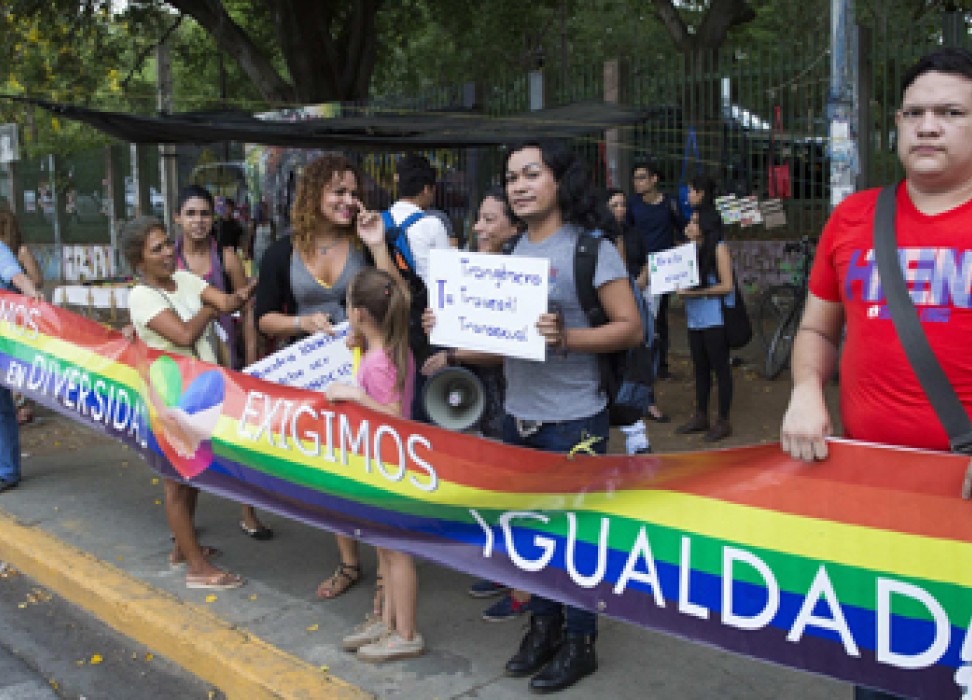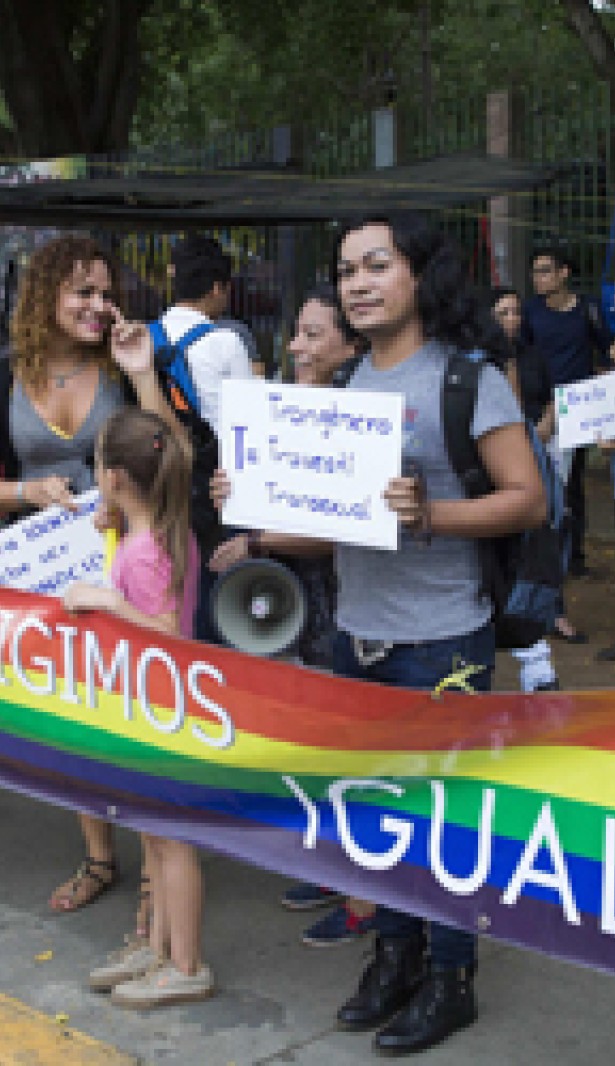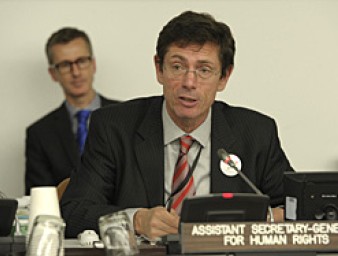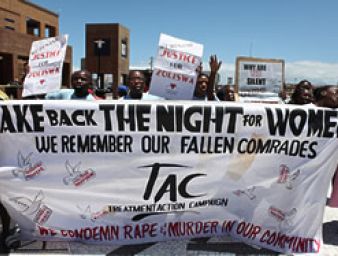"Diversity in humanity" clarion call for expert on sexual orientation, gender identity and human rights
09 June 2017

"Sexual orientation and gender identity are inherent to everybody," Mr. Vitit Muntarbhorn told the assembled members of the UN Human Rights Council. "How you feel toward one another, that’s sexual orientation. How you feel about yourself, which may be different from the gender assigned at birth, is gender identity."
Mr. Muntarbhorn, who is the Independent Expert on the protection against violence and discrimination based on sexual orientation and gender identity (SOGI), made his statement during a presentation to the Human Rights Council in Geneva. It is the first report to the Council since the position was created by the Council in 2016.
In order to address violence and discrimination against people based on sexual orientation and gender identity, Mr. Muntarbhorn said it is "it is essential to harness and reinforce mutual respect, tolerance and understanding, compliance with human rights and a sense of humanity inherent to diversity." The theme of the report, "Diversity in humanity, humanity in diversity" is anchored on this belief, Mr. Muntarbhorn said.
The report lists six "underpinnings" – areas that, if addressed, can help establish a safer environment for LGBT communities. These include: decriminalization of consensual same sex relations, effective anti-discrimination measures, legal recognition of gender identity, destigmatization linked with depathologization, sociocultural inclusion and promotion of education and empathy
"Even though human rights are inherent to everyone and propel protection for all persons without exception, regrettably persons with an actual or perceived sexual orientation and/or gender identity diverging from particular societal norms are at times targeted for violence and discrimination…[including] killings, rape, mutilation, arbitrary detention, mental health assault and bullying from a young age."
Among the tasks Mr. Muntarbhorn will undertake include: raising awareness of the problem, engaging in dialogue with all sides of the issue, and working with States to enact measures to effectively address violence and discrimination based on sexual orientation and gender identity.
"Shades of No"
Establishing the mandate was not without controversy. The vote on the position at the Council was close (23 for and 18 against, with six abstentions) and during the dialogue after the presentation of the report, block group of States lodged its objection to the position based on cultural, religious, and other reasons.
Mr. Muntarbhorn said the negative votes and the continued objections to the mandate do not worry him. There are "different shades of no" he said, and countries have different reasons for voting that may have nothing to do with the position itself.
For example, while the State representatives who voted against the position are from the executive branch of the government, members of the same State’s judiciary could enact rules favourable to the affected communities, he said.
"We need to build bridges with different pillars of the community and the state," he said. "And that is what I have been emphasizing. I respect how [a State] votes. But what I am here to do is highlight the need for action against violence and discrimination on the basis of international law. That is what we do."
9 June 2017



